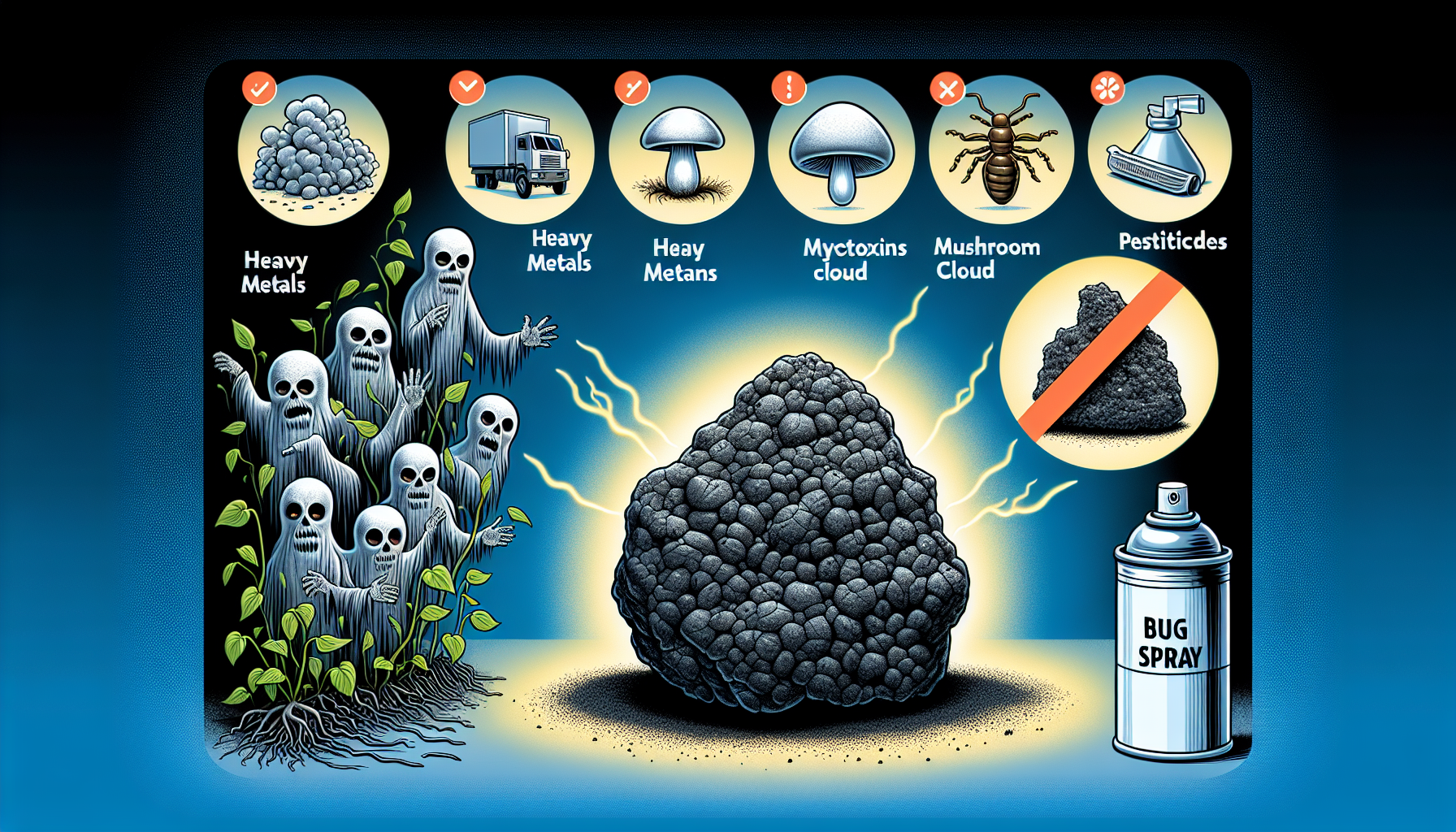Shilajit is a nutrient-rich resin from the mountains, revered in Ayurvedic medicine. It boosts energy, enhances cognitive function, and supports overall health. This article explores its top benefits, safe usage, and potential side effects.
Quick Summary
- Shilajit, a mineral-rich resin found in mountainous regions, is celebrated in traditional Ayurvedic medicine for its numerous health benefits, including boosting energy levels, enhancing cognitive function, and promoting overall well-being.
- Shilajit’s health benefits are attributed to its complex molecular composition, including fulvic acid and over 84 minerals such as iron, magnesium, and zinc, which work synergistically to support various bodily functions.
- To use shilajit safely, it is crucial to start with a small amount, gradually increase the dosage, and consult with a healthcare provider, while ensuring to purchase high-quality, tested supplements to avoid potential contaminants and adverse effects.
About Shilajit Supplement

Shilajit, often hailed as “the conqueror of mountains and destroyer of weakness,” is a mineral-rich resin that exudes from the layers of rock in mountainous regions such as the Himalayas, Tibetan, and Altai mountains. This potent substance, composed of humus and organic plant material compressed over centuries, has been a cornerstone of traditional Ayurvedic medicine. It is extensively used as a remedy for chronic diseases and is celebrated for its rejuvenating properties. Some of the benefits of shilajit include:
- Boosting energy levels
- Enhancing cognitive function
- Improving immune system function
- Promoting anti-aging effects
- Supporting overall health and well-being
With its wide range of health benefits, shilajit is a popular natural supplement for those seeking to improve their vitality and overall health.
But what exactly is in this mysterious resin that bestows such remarkable health benefits? A closer examination of shilajit’s molecular composition and the various forms it comes in will help us fully appreciate its power.
Molecular Composition of Shilajit
Shilajit’s complex molecular composition is where its true magic resides. At the heart of shilajit is fulvic acid, a powerful substance known for its wide range of health benefits. Fulvic acid helps the body absorb and utilize other nutrients more effectively, making shilajit an excellent supplement to enhance overall health. Additionally, shilajit contains more than 84 minerals, which further contribute to its health-boosting properties. Some of the minerals found in shilajit include:
- Iron
- Magnesium
- Zinc
- Copper
- Manganese
- Potassium
These minerals, along with amino acids, play a crucial role in various bodily functions and can help support overall well-being.
Beyond fulvic acid, shilajit is rich in dibenzo-α-pyrones (DBPs), dibenzo-α-pyrone-chromoproteins, and aromatic carboxylic acids, compounds that play a significant role in its physiological effects. These natural compounds work synergistically to support various bodily functions, making shilajit a potent natural phytocomplex. The unique ability of shilajit to promote health and vitality stems from this intricate blend of components.
Forms of Shilajit
Shilajit is available in several forms, each offering its own set of advantages. The most common forms include shilajit powder, resin, and solid. Shilajit powder is easy to take when dissolved in liquid, making it a convenient option for daily use. Shilajit resin, on the other hand, is a semi-hard substance that can be dissolved in water or milk. This form is often preferred by those who seek a more traditional approach to shilajit consumption.
Fascinatingly, shilajit also comes in specific varieties that give off distinct odors. For example, gomuthira shilajit has a coniferous smell, while karpura shilajit emits a camphor-like odor. These variations are a testament to the diverse nature of shilajit and its adaptability to different preferences and needs.
Health Benefits of Shilajit

The potential health benefits of shilajit are as diverse as its composition. From enhancing cognitive function to supporting bone health, shilajit has been linked to numerous positive health outcomes. Its anti-inflammatory properties may also contribute to slowing the aging process and improving overall well-being. It’s worth examining some of the most notable health benefits of shilajit in greater detail.
Specific areas such as:
- Cognitive health
- Bone health
- Male infertility
- Antioxidant properties
- Altitude sickness
- Heart health
deserve our attention. These subsections will provide a comprehensive overview of how shilajit can support various aspects of health.
Cognitive Health and Alzheimer’s Disease

One of the most promising areas of shilajit research is its potential role in supporting cognitive health and preventing Alzheimer’s disease. The primary component of shilajit, fulvic acid, has been shown to help prevent the accumulation of tau protein, which is a key marker of Alzheimer’s disease. By blocking the buildup of tau protein, fulvic acid may help protect against the progressive brain disorder that triggers brain cell damage and cognitive decline.
In a 2012 study, participants with probable Alzheimer’s disease who took shilajit and B vitamins showed less cognitive worsening compared to those who received a placebo. While these findings are promising, researchers emphasize that further research is needed to determine the full extent of shilajit’s potential in preventing and treating Alzheimer’s disease.
Bone Health
Shilajit has shown great promise in supporting bone health, particularly in reducing bone loss and improving bone mineral density. This is especially beneficial for postmenopausal women, who are at higher risk of osteoporosis. A 2022 study indicated that daily supplementation with shilajit may benefit postmenopausal women experiencing bone mass loss by reducing inflammation and oxidative stress. This can lead to improved bone mineral density and a reduced risk of fractures.
Furthermore, shilajit supplementation has been shown to accelerate bone healing and improve bone mineral density, making it a valuable addition to the health regimen of those looking to support their skeletal system. Overall, shilajit could play a significant role in maintaining bone health and preventing bone-related issues.
Male Infertility
Shilajit supplementation may also offer benefits for male infertility. In a study involving 60 infertile men, more than 60% showed an increase in total sperm count after taking shilajit twice daily for 90 days. Additionally, over 12% of the participants experienced an increase in sperm motility.
These findings, supported by scientific evidence, suggest that shilajit could be a valuable natural remedy for improving male reproductive health.
Antioxidant Properties

The antioxidant properties of shilajit are another key aspect of its health benefits. Shilajit contains fulvic and humic acids, which are known for their potent antioxidant effects. These antioxidants help combat oxidative stress by neutralizing free radicals and reducing cellular damage, which can contribute to chronic inflammation and various health conditions.
By supporting the body’s natural defense mechanisms, shilajit can help maintain immune health and promote overall well-being. The combination of fulvic acid, humic acid, and other natural compounds in shilajit makes it a powerful tool for enhancing the body’s resilience against oxidative stress and aging.
Altitude Sickness
For those who frequently travel to high altitudes, shilajit may offer relief from altitude sickness. Its benefits include:
- Reducing hypoxia and improving physical performance at high altitudes
- Aiding in the removal of excess fluid from the body
- Alleviating symptoms such as headaches, fatigue, and dizziness associated with altitude sickness
This makes it a valuable supplement for adventurers and travelers facing high-altitude challenges.
Heart Health
Shilajit may also play a role in improving cardiovascular health. Studies have shown that shilajit can enhance cholesterol levels and blood pressure regulation, which are critical factors for heart health. In particular, improvements in cholesterol levels and triglycerides were observed in individuals who took shilajit compared to those who received a placebo. The dosage used in the study was 2 grams per day for 45 days, demonstrating the potential effectiveness of shilajit in supporting cardiovascular health.
Additionally, shilajit has been shown to help reduce the extent of cardiac lesions in lab rats induced with heart injury, suggesting its protective effects on the heart. However, individuals with cardiovascular conditions should consult their healthcare provider before using shilajit to ensure it is safe and appropriate for their specific health needs.
Safety and Side Effects

Despite the numerous health benefits of shilajit, awareness of potential side effects and safety concerns is paramount. Allergic reactions, rashes, dizziness, or altered hormone levels may be experienced by some individuals when taking shilajit. Additionally, there isn’t enough reliable information to determine the safety of crude or unprocessed shilajit, which may lower blood sugar levels and interfere with blood sugar control during and after surgery.
It’s crucial to read supplement labels carefully and consult with a healthcare provider to review potential interactions with foods, other supplements, and medications. Starting with a small amount of shilajit and gradually increasing the dose while monitoring for adverse effects is recommended to ensure shilajit safety.
Potential Contaminants
One of the primary safety concerns with raw or unprocessed shilajit is the risk of contamination with heavy metals, mycotoxins, or pesticides. Unprocessed shilajit may contain harmful compounds such as lead, mercury, and arsenic if not properly purified. Additionally, mycotoxins produced by fungi can pose health risks if shilajit is contaminated.
Choosing purified shilajit that has been tested for contaminants is a crucial step in mitigating these risks. Ensuring that shilajit is sourced from reputable suppliers and has undergone rigorous testing, following the standards of pure and applied chemistry, can help prevent potential health hazards associated with contaminated products.
Who Should Avoid Shilajit
Certain individuals should avoid using shilajit due to potential health risks. This includes:
- Pregnant or breastfeeding women due to insufficient safety information
- Individuals with active heart disease
- Individuals with autoimmune diseases
- Individuals with concerns about testosterone levels
It is important for these individuals to avoid shilajit to ensure their health and safety.
Shilajit may also lower blood pressure, which could be risky for people on high blood pressure medication or those with hypotension. Children and individuals with hemochromatosis should also avoid shilajit, as it may not be safe for these groups.
How to Use Shilajit Safely
For safe and effective use of shilajit, consulting with a healthcare provider before starting supplementation is imperative. There is no standard dosage for shilajit, and individual factors such as body type, health concern, and patient strength can affect the appropriate dose.
Here are some general guidelines to follow:
- Start with a small amount of shilajit.
- Gradually increase the dosage while monitoring for any adverse effects.
- Consult with your healthcare provider to determine the optimal dosage for your specific needs.
Remember, it is always best to seek professional advice when it comes to using any dietary supplement.
A safe daily dosage of shilajit typically ranges between 250 to 1,000 mg, but more research is needed on dosages for specific health needs and populations. Working with a healthcare professional can help determine the right dosage for your individual needs.
Recommended Dosage
Processed shilajit is considered possibly safe when taken by mouth in doses of up to 2 grams daily for 45 days or 500 mg daily for up to 48 weeks. Holistic practitioners often recommend starting with one tablet of shilajit and gradually increasing to two tablets twice daily, depending on individual needs and tolerance.
The appropriate dosage of shilajit can vary based on factors such as body type, health concerns, and overall strength. Consulting with a healthcare professional, such as a registered dietitian nutritionist, pharmacist, or healthcare provider, is essential to determine the right dosage and ensure safe use.
Choosing Quality Shilajit Supplements
In order to ensure safety and effectiveness, it is vital to choose the right shilajit supplement. Here are some tips to help you make the right choice:
- Purchase shilajit from reputable sources that guarantee quality and purity, as the FDA does not monitor natural supplements.
- Look for shilajit products that have been tested by third-party laboratories to avoid contamination risks.
- Ensure that the product is free from harmful substances such as heavy metals, mycotoxins, and pesticides by checking for additional testing.
By following these tips, you can ensure that you are purchasing a high-quality and safe shilajit supplement.
High-quality shilajit products usually specify their fulvic acid content, with higher percentages indicating more potency. Ensuring that the shilajit you choose has clear labeling and third-party testing results can provide peace of mind and help you reap the full benefits of this powerful natural supplement.
Summary
Shilajit, a potent substance derived from the heart of mountain ranges, offers a plethora of health benefits ranging from cognitive support to bone health, male fertility, antioxidant properties, altitude sickness relief, and cardiovascular health improvement. Its complex molecular composition, rich in fulvic acid and over 84 minerals, contributes to its wide range of positive effects on the body and mind. However, it is essential to be aware of potential contaminants and the importance of choosing purified shilajit supplements from reputable sources.
While shilajit holds great promise for enhancing health and well-being, it is crucial to consult with a healthcare provider before starting supplementation. By understanding the appropriate dosage and ensuring the quality of the supplement, you can safely incorporate shilajit into your health regimen and unlock its full potential. Let the ancient wisdom of traditional Ayurvedic medicine guide you towards a healthier, more vibrant life with shilajit.
Frequently Asked Questions
What is shilajit, and where does it come from?
Shilajit is a mineral-rich resin that comes from rock layers in mountainous regions like the Himalayas, Tibetan, and Altai mountains, and is composed of humus and organic plant material compressed over centuries.
What are the primary health benefits of shilajit?
Shilajit offers various health benefits, such as cognitive support, bone health improvement, fertility enhancement, antioxidant properties, altitude sickness relief, and cardiovascular health improvement. These properties make it a valuable natural supplement.
Are there any side effects of taking shilajit?
Yes, potential side effects of taking shilajit may include allergic reactions, rashes, dizziness, and altered hormone levels, so it’s important to consult with a healthcare provider before using it.
How should I take shilajit, and what is the recommended dosage?
Start with a small amount of shilajit and gradually increase the dosage, while monitoring for any adverse effects. The recommended dosage can vary, but it is generally considered safe in doses of up to 2 grams daily for 45 days or 500 mg daily for up to 48 weeks.
How can I ensure that the shilajit supplement I choose is of high quality?
To ensure high-quality shilajit supplements, purchase from reputable sources that provide third-party testing results and specify their fulvic acid content. This will help you ensure its purity and quality.
Does Shilajit increase testosterone?
Yes, Shilajit has been shown to increase testosterone levels. Clinical studies have demonstrated that purified Shilajit can significantly boost both total and free testosterone levels in healthy men. For instance, one study found that daily supplementation with Shilajit for 90 days led to a notable increase in testosterone levels (1). Another study confirmed these findings, reporting a significant rise in testosterone levels among participants who took Shilajit consistently (2). Therefore, Shilajit can be considered effective for enhancing testosterone levels based on current scientific evidence.
Author

Dr. Aditya K. Sharma
I am Dr. Aditya Sharma, a dedicated urologist specializing in kidney transplants and advanced urological surgeries. My career is driven by a passion for delivering exceptional care and pioneering surgical techniques. Outside the operating room, I have a keen interest in studying the effects of anabolic steroids on bodybuilding, seeking to understand the fine line between enhancing performance and maintaining health.






